|
Buddhist monasticism is flexible. Although it is correct to assume that it is usually necessary for an individual to undergo a period of isolatory training (to establish and stabilise the realisation of the void) - it is also true that compassionate (Bodhisattva) activity must also be pursued throughout the myriad conditions that define worldly existence. This is true of all Buddhist traditions - as even the Bhikkhus of the Theravada School must "walk" (in a self-aware manner) through the surrounding (lay) villages - begging for food on a daily basis. Living a hermitic or cloistered existence is a means to an end and not an end in itself. Of course, this period may be repeated more than once and last any length of time. When entering different situations - the Bodhisattva does not lose sight of the realised void regardless of the external conditions experienced. The Sixth Patriarch (Hui Neng) spent around 15 years living with bandits and barbarians in the hills - retaining a vegetarian diet - even though he was not yet formally ordained in the Sangha. Within China, the Mahayana Bhikshu must take the hundreds of Vinaya Discipline Vows as well as the parallel Bodhisattva Vows (the former requires complete celibacy whilst the latter requires moral discipline but not celibacy). Anyone can be a "Bodhisattva" - whilst a formal Buddhist monastic must adhere to the discipline of the Vinaya Discipline. A lay Buddhist person also adheres to the Vinaya Discipline - but only upholds the first Five, Eight or Ten vows, etc. Vimalakirti is an example of an Enlightened Layperson whose wisdom was complete and superior to those who were still wrapped in robes and sat at the foot of a tree. In the Mahasiddhi stories preserved within the Tanrayana tradition - the realisation of the empty mind ground (or all-embracing void) renders the dichotomy between "ordained" and "laity" redundant. The Chinese-language Vinaya Discipline contains a clause which allows, under certain conditions, for an individual to self-perform an "Emergency" ordination. This is the case if the individual lives in isolation and has no access to the ordained Sangha or any other Buddhist Masters, etc. The idea is that should such expertise become available - then the ordination should be made official. However, the Vinaya Disciple in China states that a member of the ordained Sangha is defined in two-ways: 1) An individual who has taken both the Vinaya and Bodhisattva Vows - and has successfully completed all the required training therein. 2) Anyone who has realised "emptiness". Of course, in China all Buddhists - whether lay or ordained - are members of the (general) Sangha. The (general) Sangha, however, is led by the "ordained" Sangha. As lay-people (men, women, and children) can realise "emptiness" (enlightenment) - such an acommplished individual transitions (regardless of circustance) into the "ordained" Sangha. This is true even if such a person has never taken the Vinaya or Bodhisattva Vows - regardless of their lifestyle or position within society. Such an individual can be given a special permission to wear a robe in their daily lives - but these individuals do not have to agree with this. Realising "emptiness" is the key to this transformative process. Emptiness can be realised during seated meditation, during physical labour (or exercise), or during an enlightened dialogue with a Master. The first level is the "emptiness" realised when the mind is first "stilled". This "emptiness" is limited to just the interior of the head - but the ridge-pole of habitual ignorance has been permanently broken (this is the enlightenment of the Hinayana) - and is accompanied by a sense of tranquillity and bliss. This situstion (sat atop the hundred-foot pole) must be left behind. Through further training, the "bottom drops out the barrel" - and the perception of the mind expands throughout the ten directions. Emptiness embraces the mind, body, the surrounding environment - and all things within it.
0 Comments
Dear Tony Richard Hunn (1949-2006) was both my academic and spiritual teacher. He taught me how read, write and interpret traditional Chinese ideograms. I trained with him between 1989-2006. He was an English gentleman who could read, write and speak many dialects of the Chinese language - including the rare Hakka dialect spoken by our Chinese grandmother (whom Richard met in 2000 during a visit to our house). I wrote this for Richard following his passing: He helped me understand and balance the two sides to my character - the 'Chinese' and the 'British'. He used to work for Pebble Mill (BBC) - but was an academic expert on the Chinese language and Chinese Buddhism. His spiritual teacher was Charles Luk (1898-1978) - who in-turn trained under the Great Chinese Ch'an Master Xu Yun (1840-1959). To me, Richard Hunn represented everything that is great and good about the UK. In 1991, Richard Hunn gave-up his life in the UK and migrated (via a modest academic study grant) to Kyoto in Japan. He lived there between 1991-2006 (marrying a Japanese woman - Taeko - with whom I am still in communication with today). Why did he choose Japan? Well, he received an academic grant to study the transmission of Chinese Ch'an from China to Japan - which included examining the Chinese Ch'an Temples that still exist in Japan - separate and distinct from the Japanese 'Zen' Temples. Every August-September each year, Richard Hunn (who worked at Kyoto University) used to escort a number of his English Study students (usually 20 or so) to look around London. The students would stay for about two-weeks before returning as a group to Japan without Richard. Being 'free' of this responsibility, Richard would visit all his family - before spending a week or two at our house in Sutton (Priory Road - where you showed me an excellent Tensho Kata in the hall). We would meditate together and discuss reality deep into the night. He used to test my understanding of Chinese ideograms - crushing my stupidity and encouraging my insight. Even so, I was reticent to actually 'translate' anything - until a number of Mainland Chinese students studying in the UK checked my work - and encouraged me to start translating. I was then put in contact with a number of academics in China and my life entered a new phase. Richard Hunn visited a number of old martial arts 'Dojo' positioned in and around the remote Kyoto hills. He was often 'Introduced' with a letter to various Old Masters who lived in rustic huts - usually with only one or two disciples. Many practiced Chinese arts unaltered in anyway for hundreds of years. These Japanese men and women also studied traditional Chinese ideograms - the original language of the arts they preserved. As these arts existed 'outside' the grading (coloured-belt) system of Japan - they were excluded from all State financial support - hence their simplistic existence. Best Wishes Adrian
Dear B Douglas Harding used to hold Zen meditation sessions by lying on the floor. He had no time for formal structure - as 'having no head' also apparently meant that 'he had no body' - although most people who encounter his work seem not to realise the latter. Richard Hunn knew John Blofeld and Douglas Harding - although if he knew Terrence Grey - nothing was said to me. Blofeld mentions meeting Xu Yun - but Xu Yun does not mention meeting Blofeld. This need not negate the encounter - as Xu Yun was photographed with numerous Westerners - many of whom are not mentioned in his biography. In the UK - the barbarous treatment meted-out by the Imperial Japanese Army to British POWs and civilians is still remembered with disgust and derision - as is their savage treatment toward tens of millions of Asian victims. Just what Blofeld is talking about does not ring true. Richard told me that Blofeld eventually retired to Thailand - and 'gave-up' Buddhism in the last years of his life - becoming anti-Asian and pro-Christian, so perhaps his wayward attitudes express these changes. I inherited Charles Luk's papers, and having looked through the volumes, I can say that there is no mention of John Blofeld, Douglas Harding or Terrence Grey. Charles Luk was opposed to Japanese religious corruption and actively campaigned against it. He certainly would not have assisted Blofeld if he knew of his pro-Japanese attitudes. As to hilly Hong Kong mountains - he is probably speaking of the Sai Kung area of the New Territories - where our Ancestrial village used to be. As the area is now a 'National Park' - the US social media has extended the so-called '411' mythology to include this area. Whenever I visited the area - I used to make sure I was with Chinese relatives who knew where they were going. Yes - Richard Hunn gave me his copy of John Blofeld's Yijing. It is a peperback to which Richard added a stouter cover. Of course, it is not the full Yijing, but only the Hexagrams, its line commentaries, the Judgements and Images. From what I can see, I believe Blofeld is copying Wilhelm and is not working from the original Chinese language text. It is a re-interpretation of a translation. Of course, I suspect there are hundreds of these re-interprtations in the English language by now - and that a certain selection can grant an overview of the original text. I am told that an astonishing 600,000 Americans go missing each year in well sign-posted National Parks and National Forests - although all but 6,000 are found safe and well - and that this finding is through the application of the scientific method. When people's lives are at stake I doubt superstition can replace logic and reason. In the days that Blofeld is referring to - the New Territories were strewn with hundreds of villages - many of them Hakka (he does not know this because he never went there). The distance between villages was quite often miniscule. I would say that getting truly lost would have been very difficult as there were settlements everywhere. These are the settlements the Imperial Japanese Army raped and pillaged their way through - killing at least 10,000 people in a relatively small area (1941-1945). The Yijing certainly did not assist the ethnic Chinese escape this fate. One last point that Blofeld is missing is that the Imperial Japanese Government 'banned' everything 'Chinese' - and this included the study of the Yijing. Blofeld is, therefore, misinformed and I would say, not to be trusted. With Metta Adrian
As a number of sincere practitioners have contacted me of late enquiring about the Pure Land Teachings as preserved within China - I have decided to make a simple offering of photographed pages presenting Charles Luk's expert guidance on this matter as recorded in his book entitled 'The Secrets of Chinese Meditation'. I have chosen the original (1964) hardback edition - as quite often later editions were sometimes altered here and there to suit the agenda of various publishers. This is Chapter Three (3) of that book which runs from and to pages 81=108.
Dear Jacques
Charles Luk (1898-1978) was born in Guangdong - an area of international interaction. During the pro-Western Nationalist Revolution of 1911/12 - he would have been around 13-14 years of age. Even prior to this, he may well have been exposed to English settlement (and schooling) in the Guangzhou area. He remained very tight-lipped about his education - possibly because it may have been missionary-based and he did not believe in the Western religion. From what I gather, Charles studied under a Mongolian Lama who lived in the Sichuan area of South-West China (where millions of Tibetans also live). He was interested in the Phowa method of consciousness-transformation at the point of death. This had no bearing on his training with Master Xu Yun (1840-1959). Ch'an and Phowa are two independent and different methods - with Phowa being a preparation for the dying procedure - although traditionally Ch'an Master did not require this. Within China, the current biography of Master Xu Yun is much longer than that translated compiled by Cen Xue Lu and translated by Charles Luk - which is now out of date despite being the only blue-print available in the West. Empty Cloud conveys the basic story even though there are some errors, etc. https://icbi.weebly.com/chrsquoan-master-jing-hui---history-of-master-xu-yunrsquos-complete-biographical-text.html One of my Chinese students presented me with a 'new' version and it is very interesting - giving a more all round perspective. Xen Xue Lu also altered the text slightly to give a certain bias toward the reading - as did Charles Luk. Neither were happy with Xu Yun's criticism of Tibetan Buddhism or Christianity! It is also interesting to note the complete absence of the recording of the Nationalist destruction of the Shaolin Temple (in Henan) during 1928 - the traditional home of Ch'an Buddhism in China! Cen Xue Lu admits in his biography that he once worked for the Nationalist government which pursued a policy of clearing land of temples to build housing, schools and hospitals, etc, a policy he later rejected as a 'mistake'. Charles Luk removed Xu Yun's letter to Chiang Kai-Shek criticising his embracing of the foreign religion of Christianity: https://wenshuchan-online.weebly.com/xu-yunrsquos-letter-to-chiang-kai-shek.html Both scholars retained the majority of Xu Yun's text and certainly did not alter his teaching method directly - but through omissions and the strategic placing of details, a certain politic trajectory is established through the editing and translation processes - giving the mistaken impression that such an interpretation was present in Xu Yun's original text - when in fact Xu Yun was very careful to be 'apolitical' whilst dealing directly with what was going on around him. In other words, the political sway of Empty Cloud represents the politics of the era as interpreted by Cen Xue Lu and Charles Luk (both of whom ended-up living in the British Colony of Hong Kong). Best Wishes Adrian Many people are surprised to learn that Master Xu Yun (1840-1959) was subject to a more or less continuous stream of allegations claiming that he routinely ‘broke’ the Vinaya Discipline and the Bodhisattva Vows. These assertions were usually made by common people with an axe to grind for some reason or other. The fact that no one took these allegations seriously is simply because no one who mattered believed any of it to be true. Master Xu Yun was accused of seducing young girls and women, as well as pursuing homosexual relationships with young monks. When these reports were found to be groundless – Master Xu Yun was accused of amassing money and using it to lead a life of luxury and leisure! Again, no evidence was ever found and so these allegations were ignored like all the others. When he was married (in his late teens) Master Xu Yun never touched his two wives. Years later, this was confirmed by these (now elderly) ladies who had become ordained Buddhist nuns after their husband left to become a monk around 1858. These ladies were virginal when they entered the Buddhist nunnery. My personal experience of Chinese monastic communities, as well as from the memories of other Western people who also lived as a Buddhist monk in China, confirm that homosexuality (as well as any type of sexual expression) was not present. This is because the facility of human desire is ‘turned inward’ and transmutated into pure spiritual light and energy that emanates from the centre of the forehead and from there permeates the entire body and environment. This process detaches sexual energy from the sexual organs and diverts the imagination of the mind away from sexual fulfilment through the sexual organ, focusing on ‘returning’ all this sensation back toward the empty mind ground. There is no outward sexual reaction or perversion within the average Chinese Ch’an monastery because the subject-object dichotomy that drives the sexual drive within delusive society no longer exists. There is a point in this process where the sexual drive is transformed forever regardless of circumstance. Although a conducive environment is beneficially to start with, eventually, once the six senses are permanently ‘purified’ and ‘cleansed’, then a lay-men such as Vimalakirti and Hui Neng (prior to the latter’s eventual ordination) where able to live within ordinary society and yet never break their Vinaya Discipline. Vimalakirti had a number of wives and numerous children – and yet the Buddha stated that he ‘never’ broke the vow of celibacy. Vimalakirti also criticised the Buddha’s ordained disciple Upali (a Master of the Vinaya Disciple) for being attached (in the wrong) way to the ‘letter of the law’. Vimalakirti stated that being ‘attached’ to celibacy in such a one-sided manner was as bad as being mindlessly attached to sexual pleasure! The answer is that ‘pleasure’, ‘pain’ and ‘neutrality’ are all perceived to be equally ‘empty’ of any and all permanent reality. All emerge from the empty mind ground as karmic attributes that simply take the form that is implicitly conditioned within each strand of expression. This Mahayana penetrating of all phenomena is very different to Upali’s Hinayana notion of just avoiding ‘pleasure’, etc. It is the same for ‘praise’ and ‘blame’, as both are equally ‘empty’ of any intrinsic or separate value. A practitioner who has penetrated the empty mind ground exists in a permanent state of divine indifference and are unmoved by either praise or blame. Reacting to the ignorance of others with the same ignorance does not happen because it cannot happen. Once the empty mind ground has been permanently penetrated, understood and integrated with, then there is never any slipping back to a more deficient position of understanding. People who operate through the ego are continuously attempting to make some kind of social gain through manipulating those around them. A Ch’an Master sees this straightaway and reveals the underlying reality of those who approach with ulterior motives. All is wisdom, loving kindness and compassion.
As Spring transitioned into Summer (in 1945) - the Great Maser Huaixi (淮西大师 - Huai Xi Da Shi) wrote an article which made the following observation:
‘One morning, after eating (watery) porridge for breakfast, Master Xu Yun casually commented to a nearby monk: “It is my opinion that the Japanese invaders will definitely fail. I had a dream last night and saw the Japanese kneeling in defeat and asked to surrender to the Chinese government.” Soon after Master Xu Yun made this statement, the Japanese Imperial Army – which had raped and pillaged its way across China since 1931 - announced its unconditional surrender. Acting in accordance with the British, Americans and the Chinese – the Soviet Red Army had entered Northeast China (i.e. the Japanese puppet State of ‘Manchuria’) and like a giant tidal-wave had swept the usually stubborn and fanatical (Japanese) Kwantung Army out of existence! As Master Xu Yun usually took no notice of current (worldly) events, it is interesting that he made this comment. Of course, he was aware of the War Crimes and Crimes Against Humanity committed by the Japanese Imperial Army, as he had lived in the Southern areas of China at the time, and had been amongst the ordinary people who had directly experienced this Japanese barbarity. Indeed, the common people often said that wherever Master Xu Yun was sat in meditation – the Japanese bombs would fail to penetrate! Master Xu Yun was ‘other worldly’ and yet he had to live in this ‘real’ world. He possessed a sharp-mind and despite his compassion, he did not suffer fools lightly. He was a strict task-master who taught his disciples and students through the use of a harsh wisdom and pure discipline. He would ensure that the mind and body would be purified through ‘correct behaviour’ of body, and that greed, hatred and delusion would be uprooted from deep within the mind. Like any good Ch’an master – he could sense arrogance, pride and ignorance, as well as hidden motives and black hearts lurking within potential students. As this corruption is even more prevalent today, not tolerating this ‘klesa’ is a mark of any competent Ch’an teacher. Chinese Language Reference: http://www.youcin.com/shijie/152650210.html Master Xu Yun (1840-1959) inherited all Five Ch’an School in China. Although Japanese and US scholarship often claim that Chinese Buddhism ‘died-out’ - and was re-imported from Japan – this is untrue and a product of bias and incomplete knowledge. Certainly, Master Xu Yun would not have agreed with this assumption. All the lineages of Chinese Buddhism have continued to survive through thick and thin as the forces of Chinese history have ebbed and flowed. When conditions are appropriate, the various lineages have become ‘public’, popular and well-known, but when conditions have changed, then these lineages have withdrawn into the background and become ‘private’ transmissions away from the public gaze. Regardless of whether a lineage was ‘private’ or ‘public’ - Master Xu Yun was sought-out to carry the Dharma forward – such was the purity of his being. He lived for two full cycles of the Chinese Zodiac (60-years X 2) because of his shining virtue. He inherited and passed-on many lineages of Buddhism – far more than within the Ch’an School – but his personal lineage was that of the Cao Dong School. This is the lineage he personally inherited from Master Miao Lian (1824-1907) and the lineage he was instructed to personally transmit to a special ‘inner’ lineage of lay and monastic practitioners. The Cao Dong lineage was the path that he personally preferred amongst all the others that he was an expert in understanding and teaching. The robe of the Cao Dong School is ‘black’ and on special occasions Master Xu Yun would swap his patch-work robe for the his carefully looked-after Cao Dong robe (pictured above). Master Caoshan (840-901) - the disciple of Master Dongshan (807–869) [the Founder of the ‘Cao Dong’ School] - visited the Temple of the Sixth Patriarch Hui Neng situated in the Caoxi area of Guangdong province (in Southern China). He then re-named the mountain he settled on (in the Fuzhou area of Fujian province) as ‘Caoshan’ in honour of the memory of Master Hui Neng. This is because the Cao Dong lineage flows all the way back to Hui Neng and is directly linked to his body which still sits upright in meditation in China today. ALL advanced Cao Dong must master the ability of passing from this life in the manner of Hui Neng. A monk asked Master Dongshan: “The Venerable Sir is unwell but is there anyone who is never ill?” The master replied: “Yes, there is.” The monk asked: “Does the one who is never ill still look at you?” The master replied: “(On the contrary,) the lot falls on this old monk to look at him.” The monk asked: “How does the Venerable Master look at him?” The master replied: “When the old monk looks at him, he does not see any illness.” The master then asked the monk: “When you leave this leaking shell, where will you go to meet me?” The monk could not reply... After saying this, he ordered his head to be shaved and (his body) bathed, after which he put on a robe and struck the bell to bid farewell to the community. As he sat down and passed away, the monks wept sadly without interruption. Suddenly, he opened his eyes and said: “Leavers of homes should be mindless of externals; this is true practice. What is the use of being anxious for life and death?” The master then ordered a stupidity-purifying mal and seeing that his disciples were strongly attached to him, he postponed (his death) for seven days. (On the last day,) he entered the dining hall behind his disciples and after taking food, said: “I am all right; when I am about to leave, you should all keep quiet.” Then he returned to the abbot’s room where sat cross-legged and passed away. A monk asked the Master Caoshan: “Every part of my body is sick; will you please cure me?” The master replied: “I will not.” The monk asked: “Why not?” The master replied: “It is impossible to teach you how to live and die.” The monk asked: “Does the master not have great compassion (for other people)?” The master replied: “Yes, he has.” The monk asked: “What should one do when all the six robbers come suddenly? The master replied: “One should also have great compassion.” The monk asked: “How to have a great compassion?” The master replied: “All should be cut down at one stroke by the sword.” The monk asked: “What next after (the sword has) cut them all down?” The master replied: “The realisation of sameness will then be realised.” After saying this, he burned incense sticks, sat (cross-legged) and passed away in his sixty-second year and at his dharma-age of thirty-seven.
Extracted from the Transmission of the Lamp The paradox of the Chinese Ch’an tradition is that it expects lay-people and monastics alike to realise full enlightenment - ‘here and now’. What does this mean? Regardless of the circumstances of an individual’s life, the insight capacity of the mind must be turned inward with such a high degree of focus and precision, that perception is permanently ‘altered’ so to ‘see’ and ‘understand’ more than what was understood before. Being a Buddhist monastic is no guarantee of success in realising enlightenment, just as being a lay-person should be no barrier. Individuals will learn at their own pace and in their own way, with all kinds of psychological and physiological factors coming into play (traditionally referred to as ‘personal karma’). The ‘language of the uncreate’ is unique to Chinese Ch’an Buddhism and uses language in such a way that does not allow the habitual ‘dualism’ of conventional communication to come into play during an ‘enlightening’ interaction or dialogue. The convention of ‘dualism’ preserves delusive states of mind, and prevents clarity of insight from developing. This is why Ch’an masters (in ancient times) developed this mode of non-communication, although when Master Xu Yun (1840-1959) taught during the 19th and 20th centuries, he often used a modern example of logic and reason to describe the history, method and purpose of the Ch’an School. Indeed, whilst encouraging his disciples to fully penetrate (and realise) the empty mind-ground, he would often warn against the cultural habit of many people attending Ch’an Week Retreats to descend into ‘mystical’, or ‘nonsensical’ states of mind, each of which was nowhere near the authentic realisation of the empty mind ground! Uttering nonsense about ancient masters, does go much beyond the nonsense being uttered! However, once the empty mind ground is realised, then every word spoken by the Buddha is understood exactly and clearly, as is every odd action and utterances of the ancient Ch’an masters!
I am contacted every so often, and asked whether this site is still ‘active’ - as if its function is conventional and similar to the other sites. Of course, this is not true. The translation work that inspired Charles Luk (1898-1978), and (my teacher) Richard Hunn (1946-2006) was first suggest by the Venerable Old Monk – Xu Yun (虚云) [1840-1959) - because he had a dream (either sleeping or during meditation), that the Chinese Ch’an Dharma would spread to the West (as it historically had done from India to China), and that its methods would help endless numbers of Westerners. There was a time of intense activity, as I was provided with authentic Chinese language texts from my Mainland Chinese academic colleagues and fellow ethnic Chinese Ch’an practitioners. This activity has understandably slowed-down lately, as the amount of texts available has diminished. Our success has been to translate those readily available. More will undoubtedly become available in time, but I tend to prefer a more ‘natural’ approach to this process, and patiently ‘wait’ for genuine Chinese language texts to make themselves available. Although I am an academic specialising in the translation of Chinese historical and philosophical texts into English, the texts involving Xu Yun take a lot of spiritual energy to handle correctly. It is not a simple case of exchanging one set of words for another, as a deep and profound meaning must be a) perceived, b) understood, and c) translated and transliterated into a modern and reliable English translation. English speakers must receive (in their ethnic language) the correct meaning that Xu Yun (and his disciples) intended in their ethnic (Chinese) language. This is a special type of translating that is different to its conventional cousin. Simply exchanging words, (even the ‘correct’ word) is not good enough, as anyone with a dictionary and the requisite will-power can do that. I was trained by Richard Hunn for seventeen years, but even then, I was reticent to start translating full-time. Then, I met a number of very kind and encouraging Mainland Chinese people working in the UK, who encouraged me to start this project and formally take-over from Richard Hunn. As a consequence, we have built-up a compendium of good quality Chinese Ch’an texts that are rare in the West and designed to inspire readers to sit strongly and look within using the hua tou (Who is hearing?) - with a persistent (but gentle) power of concentration...
|
Archives
March 2024
Categories
All
|
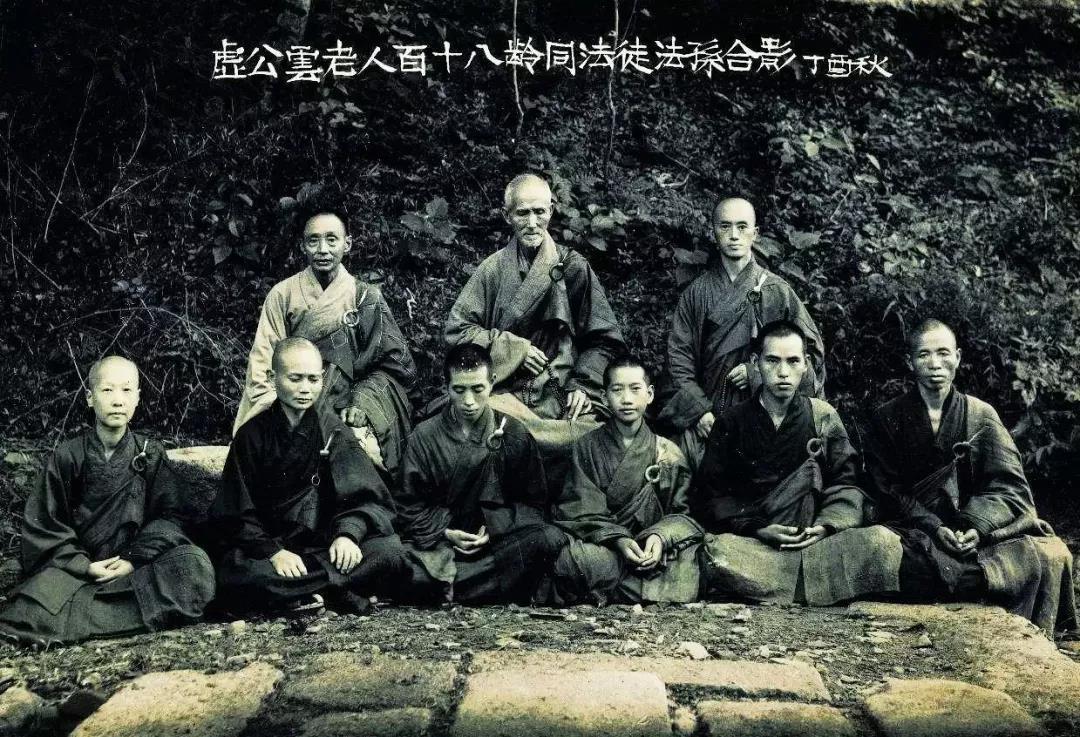
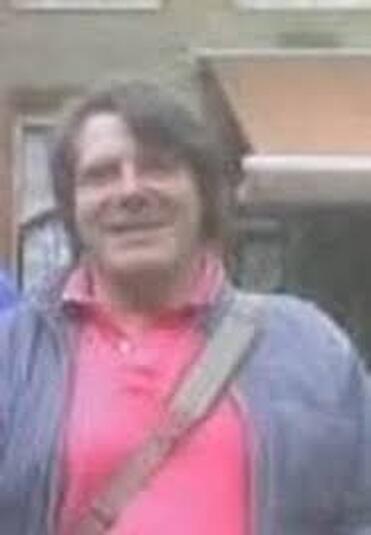
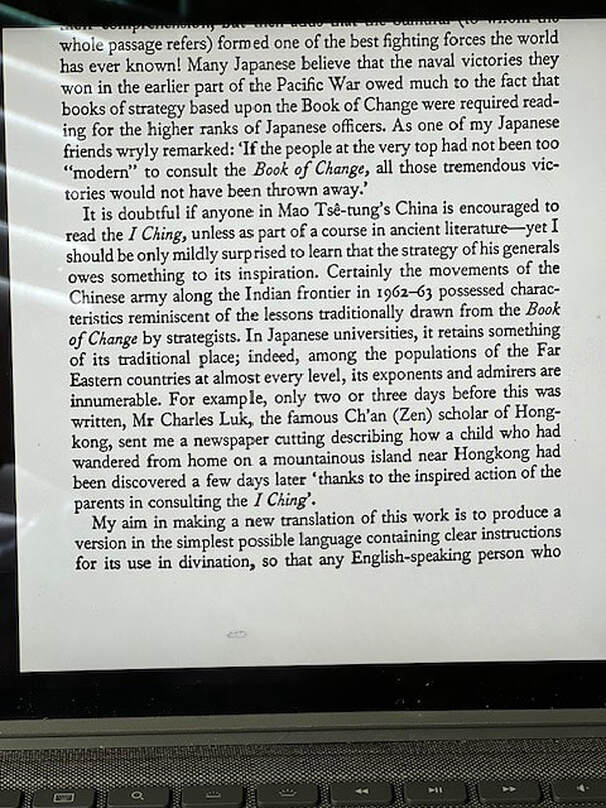
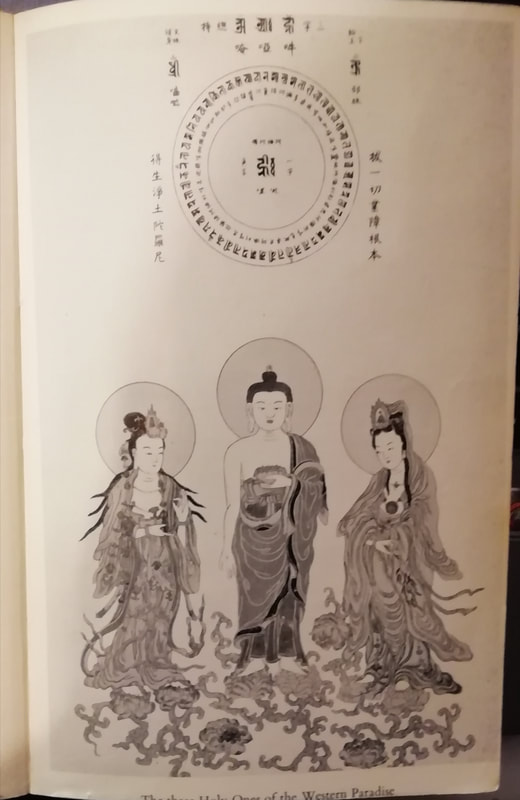
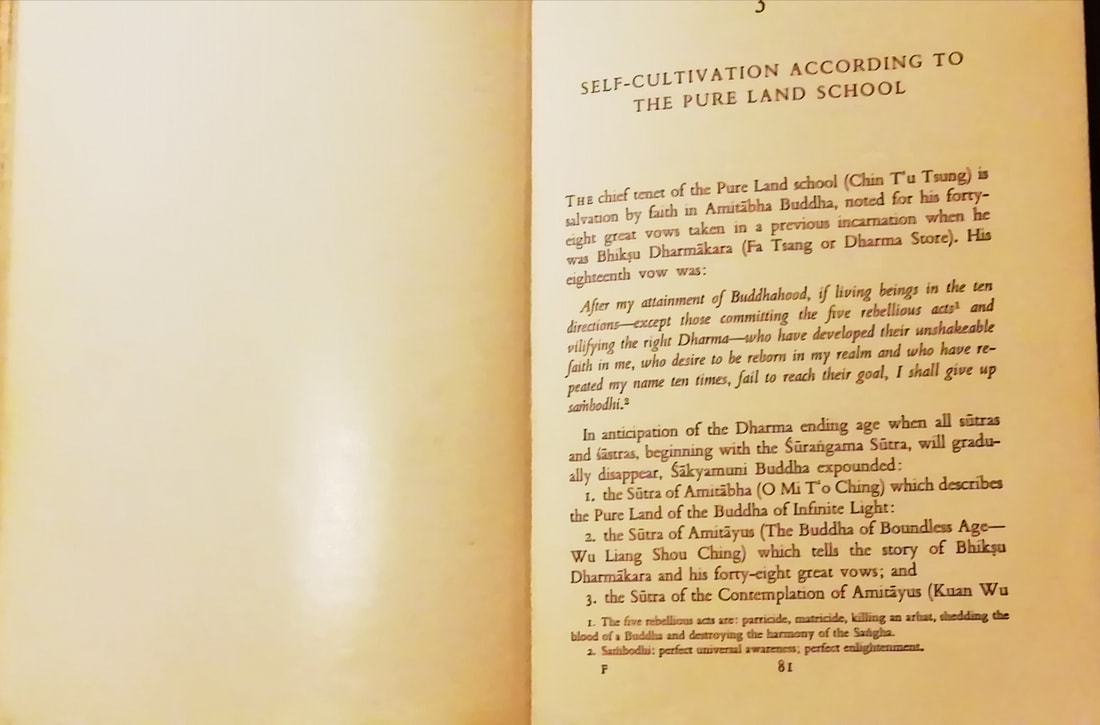
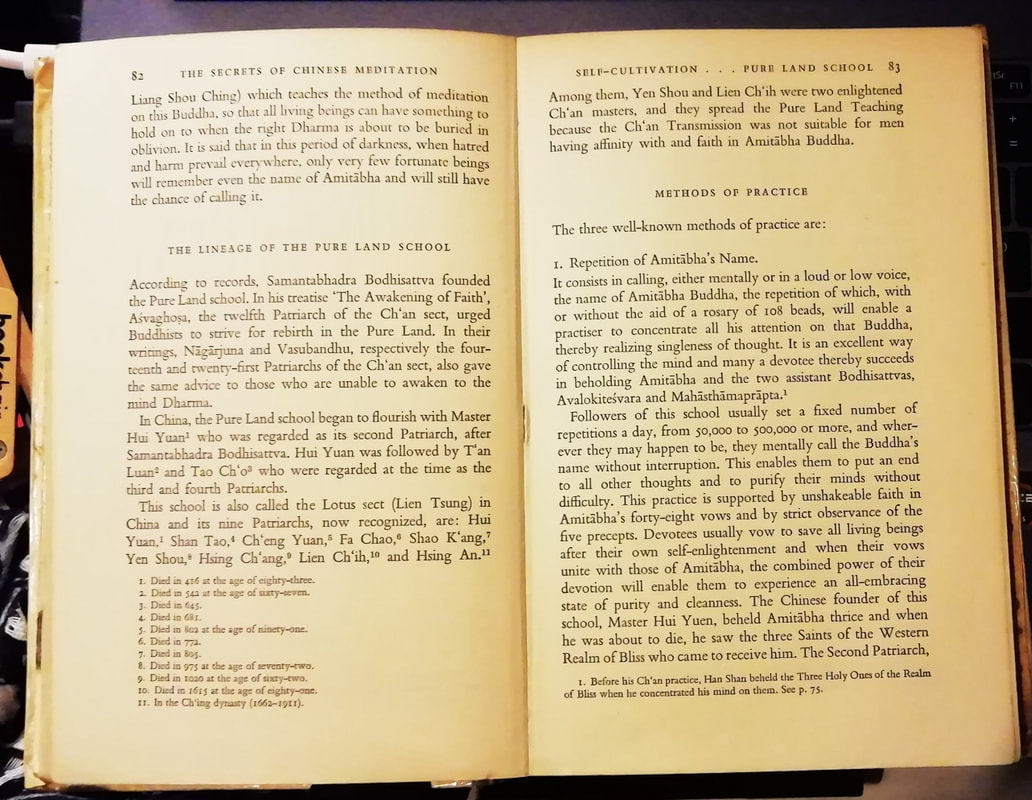
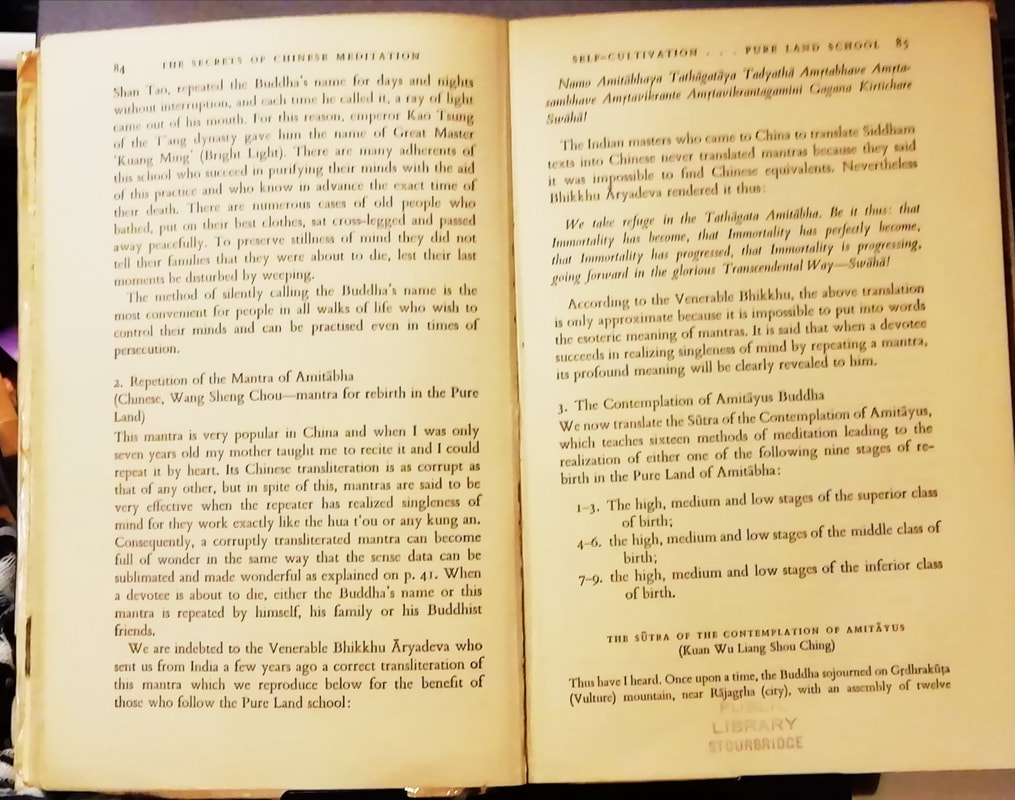
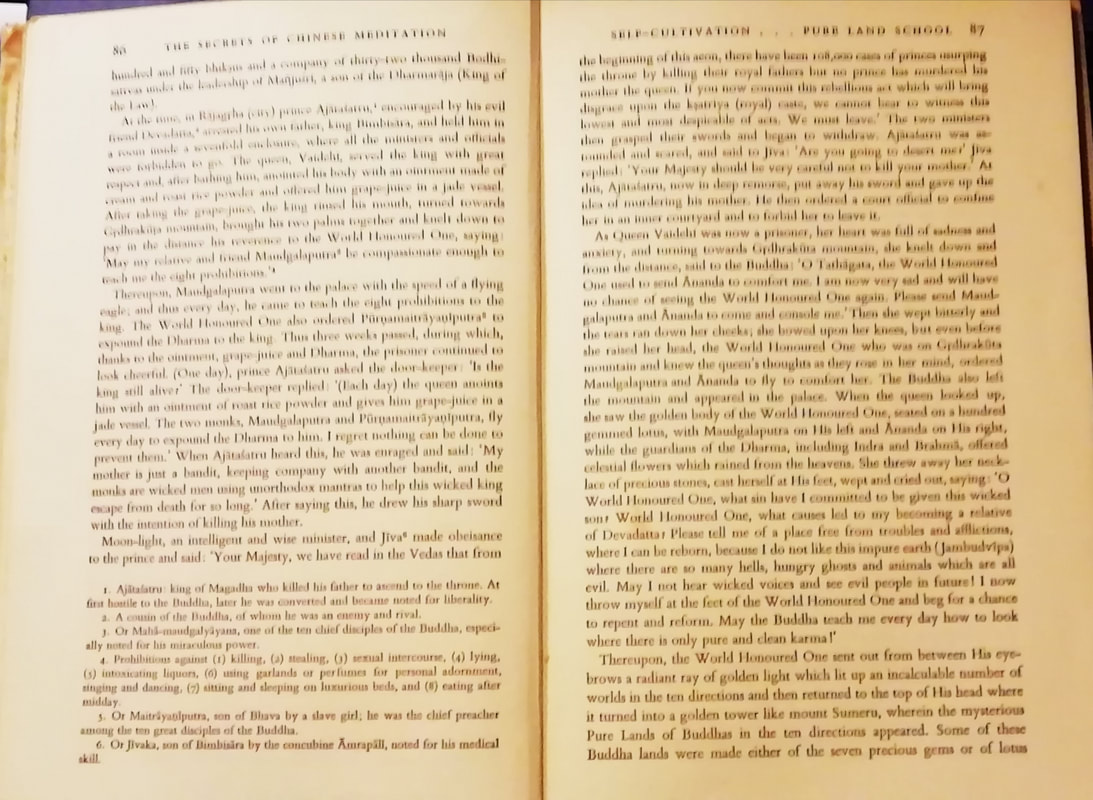
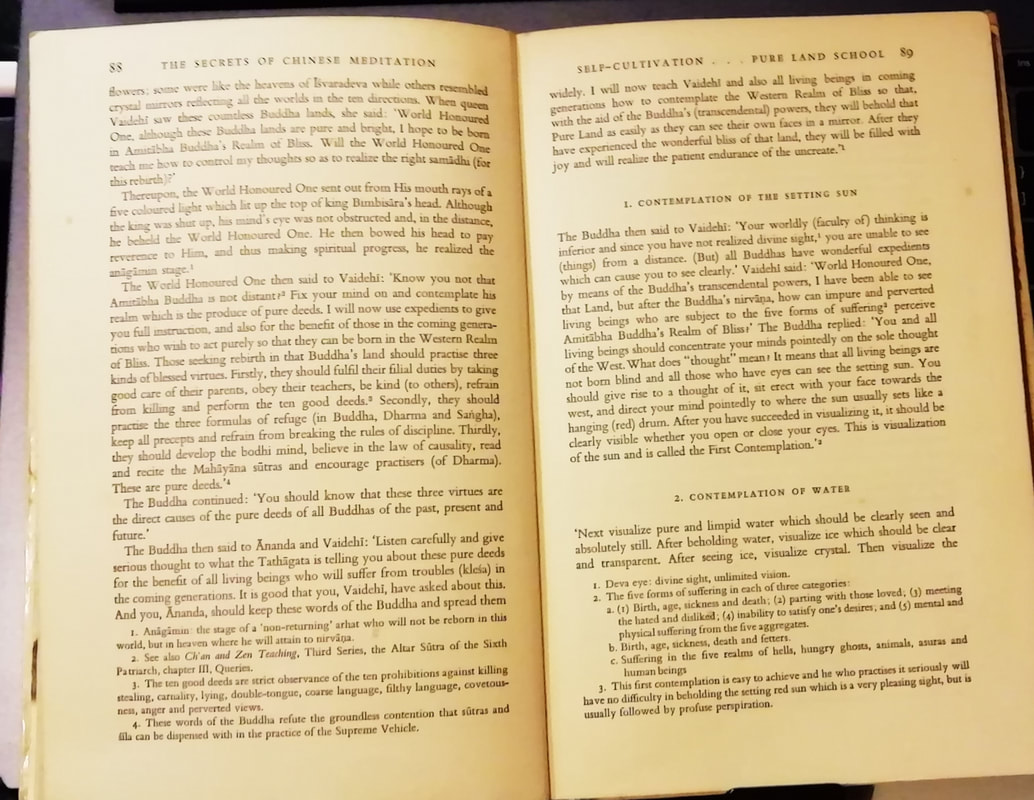
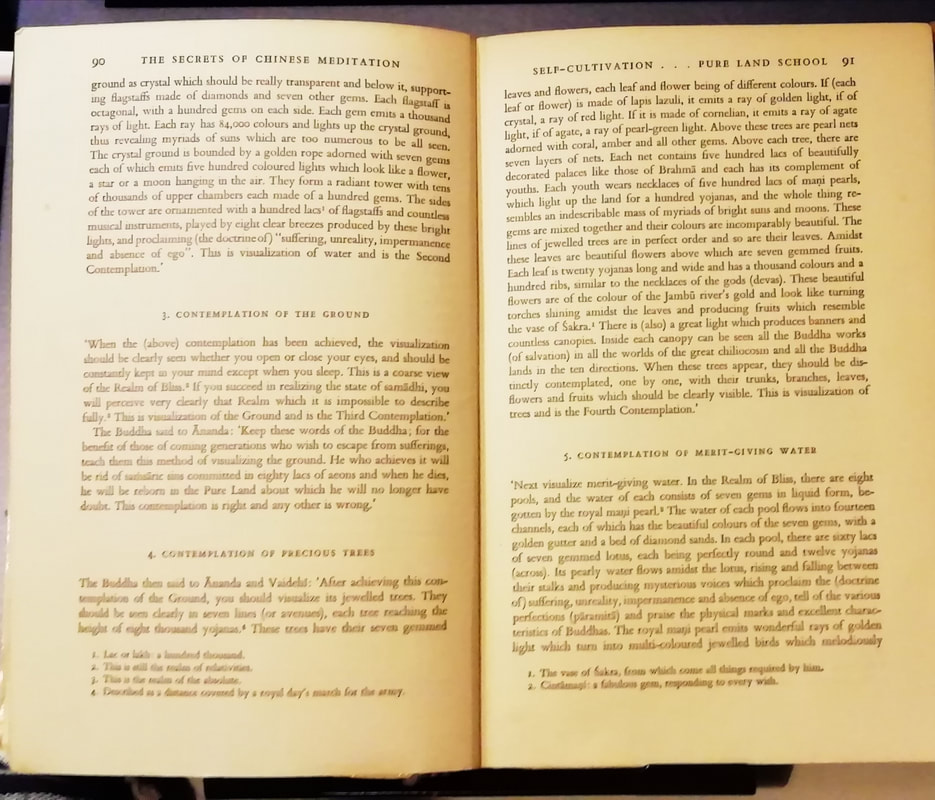
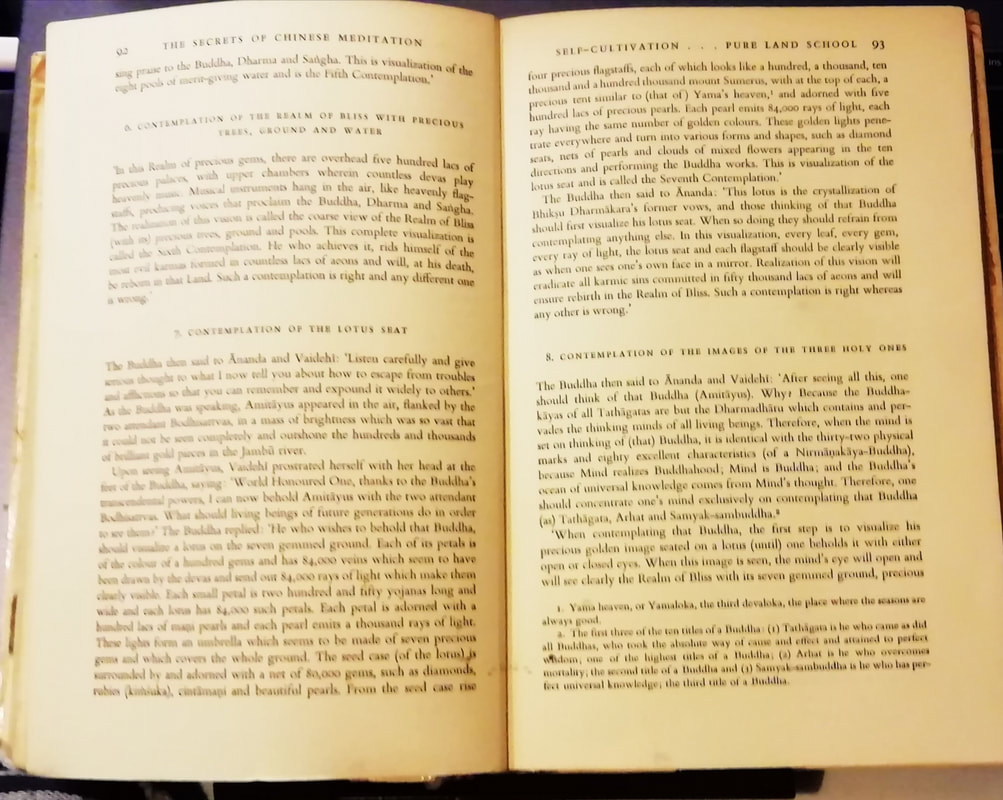
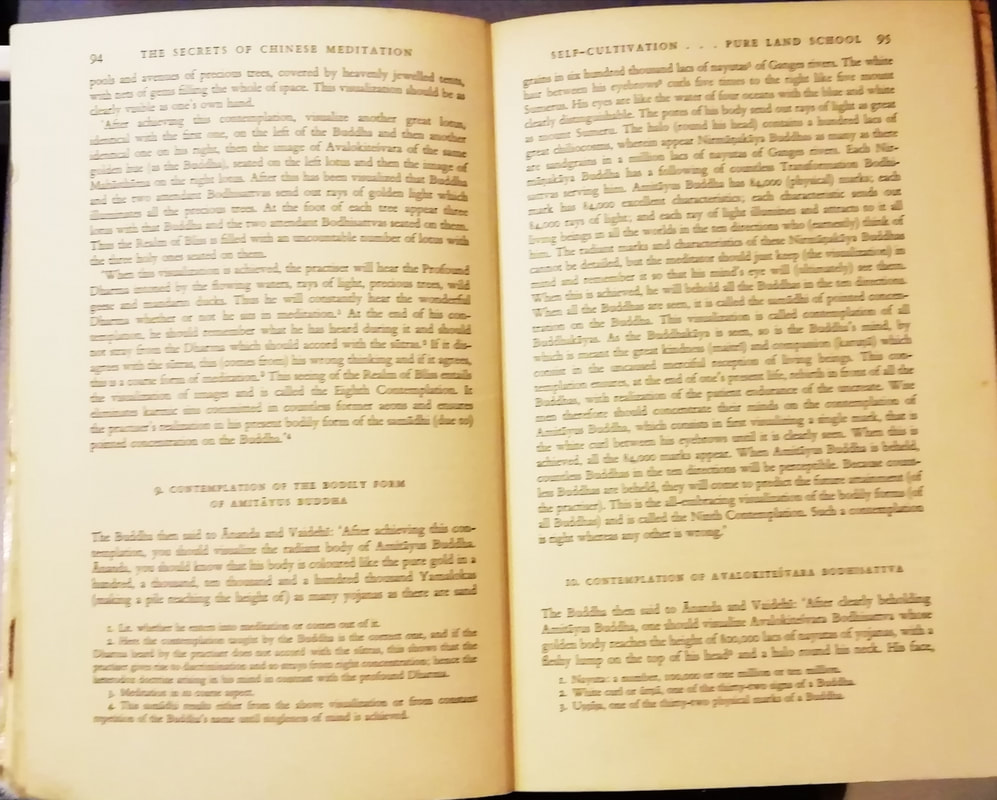
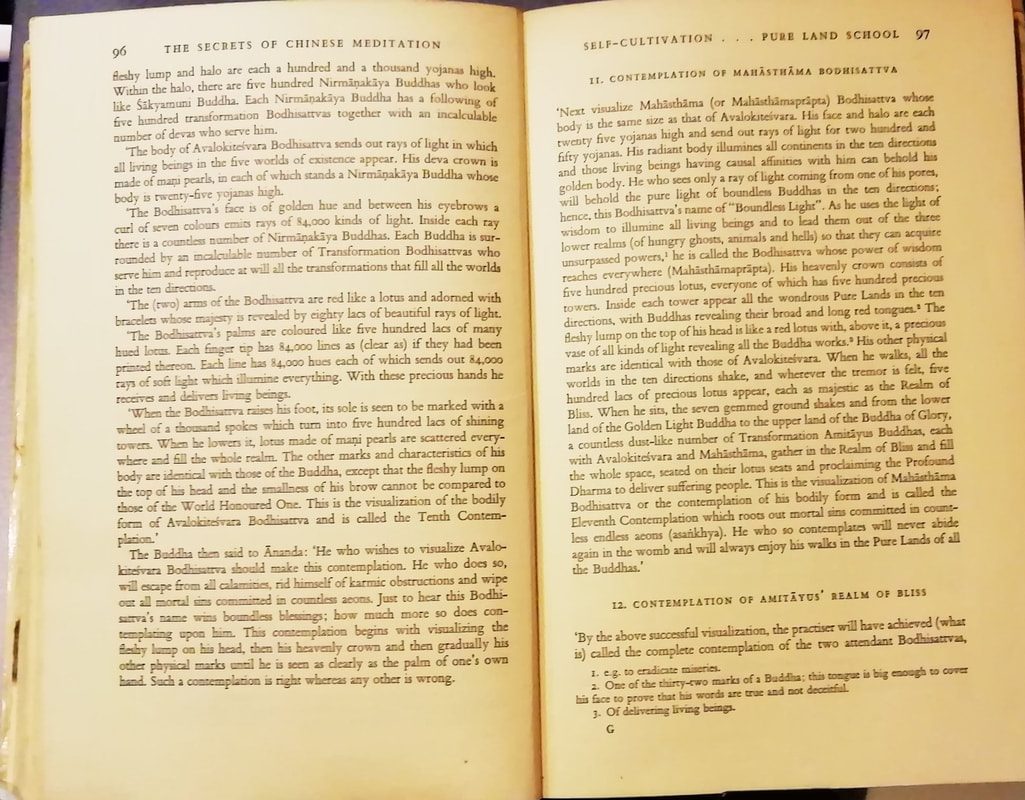
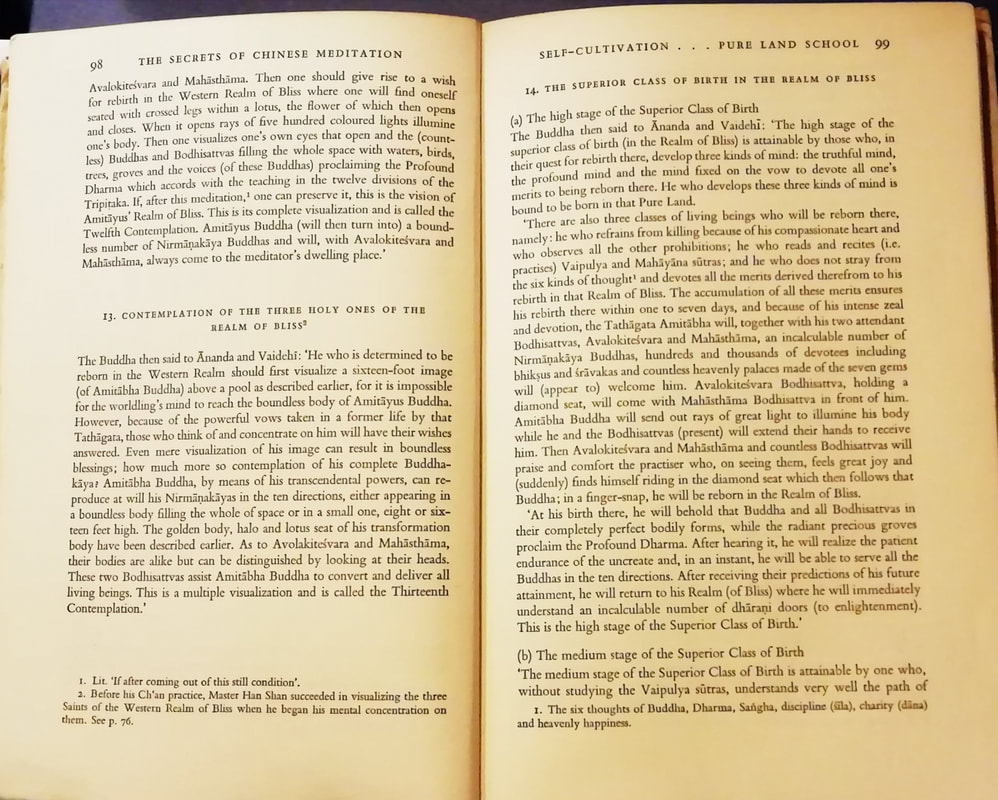
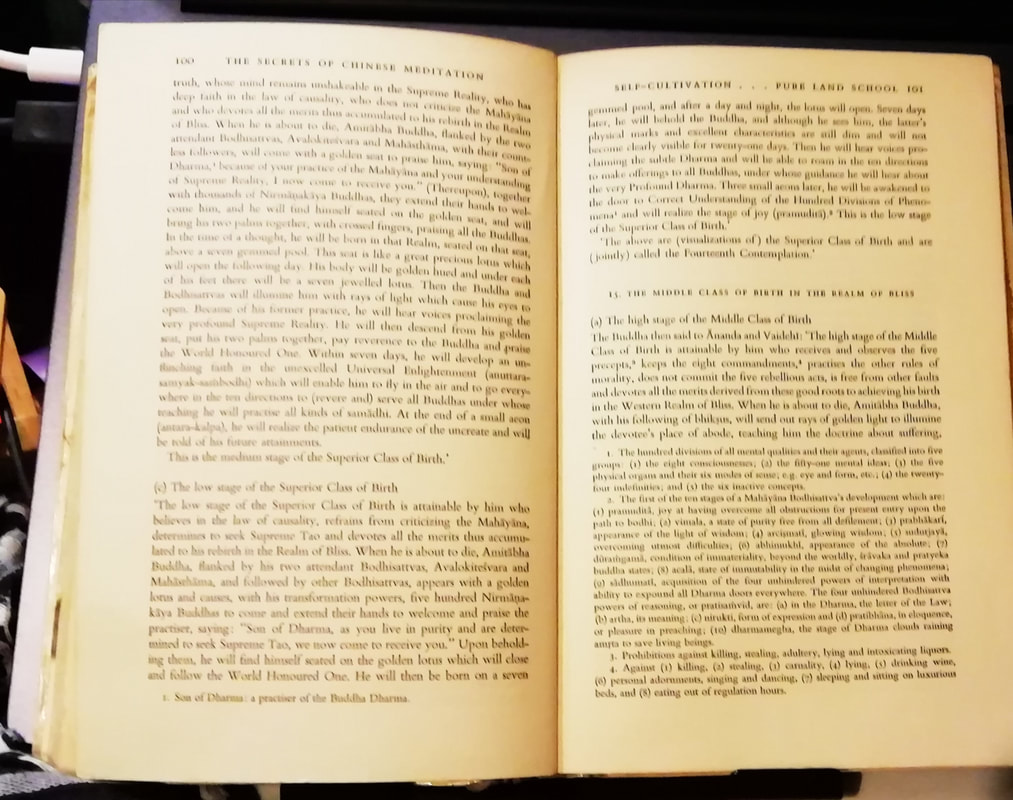
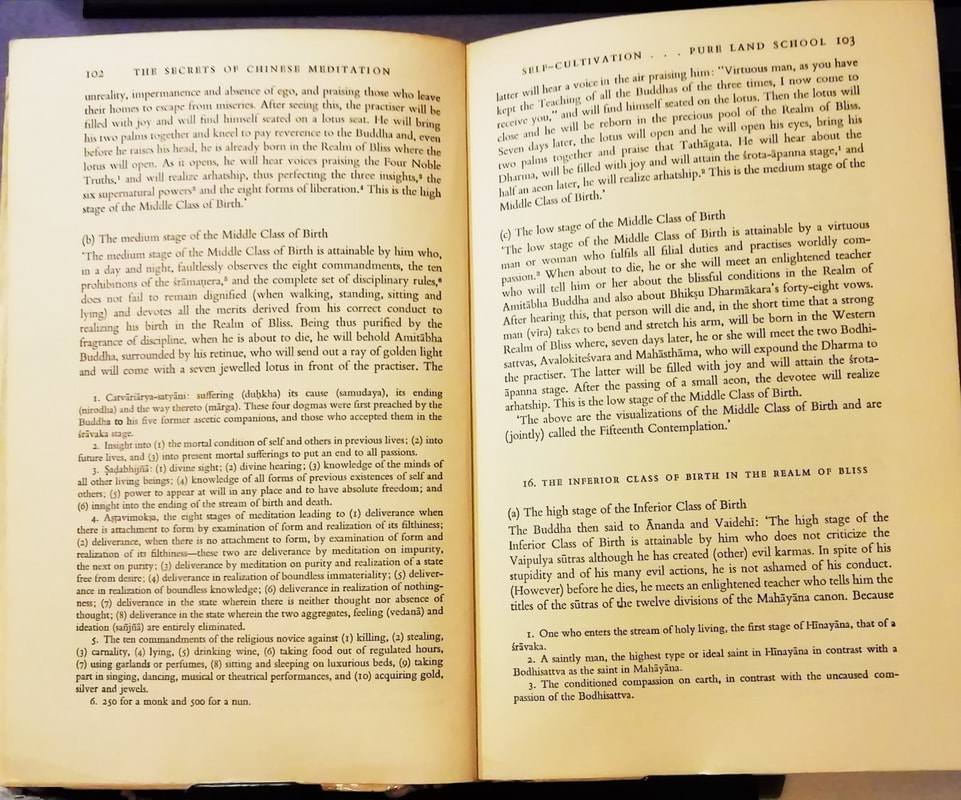
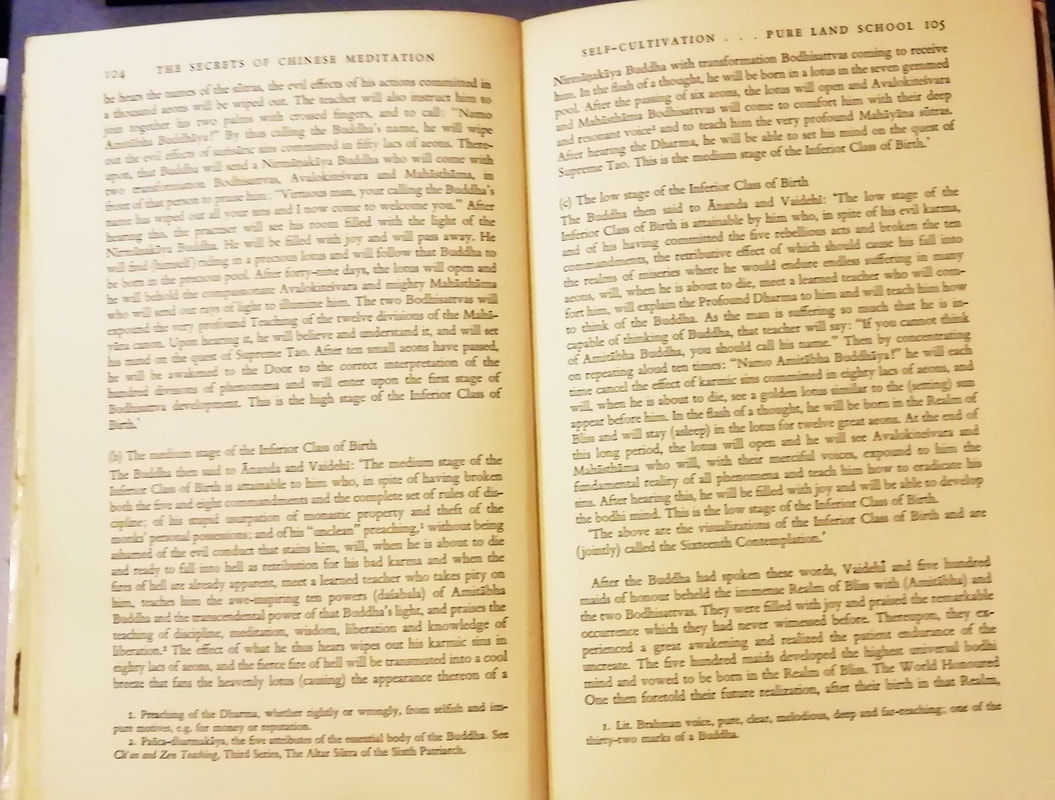
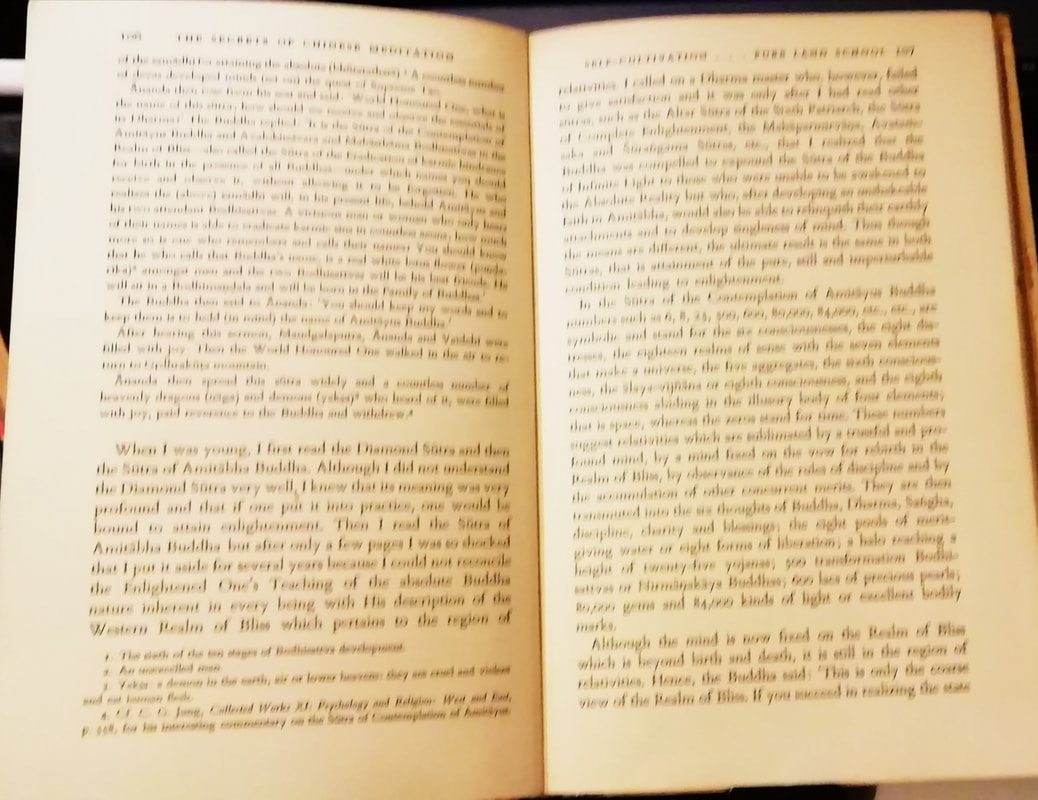
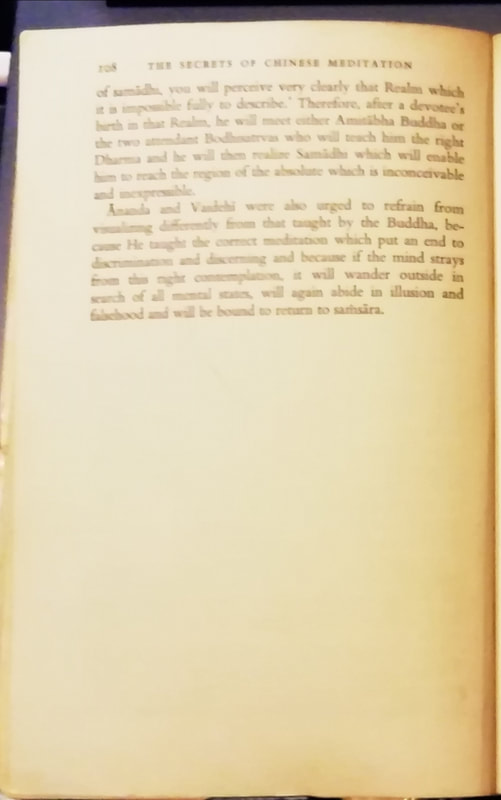
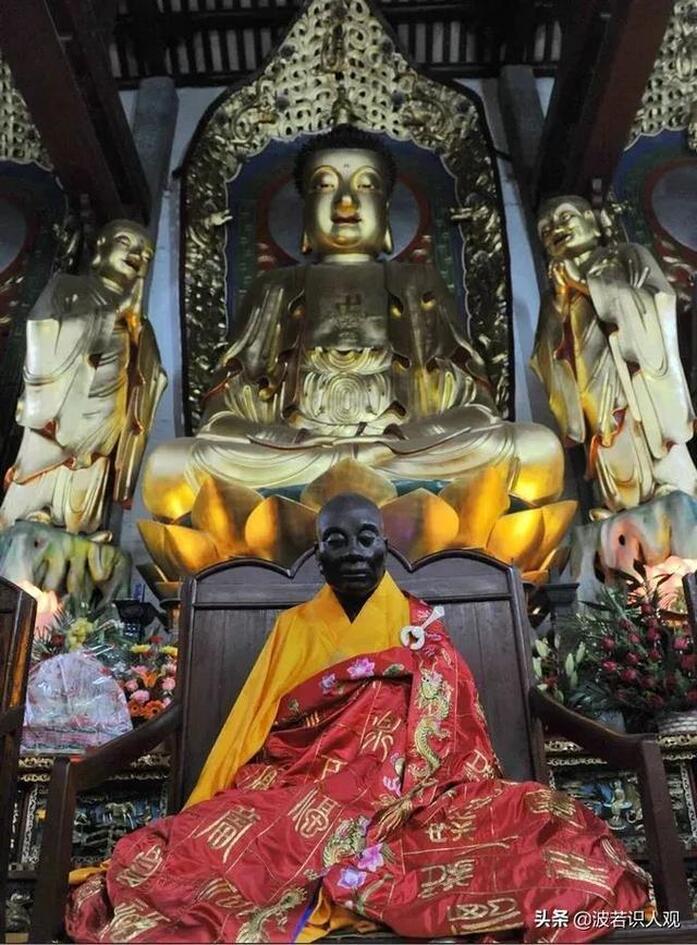
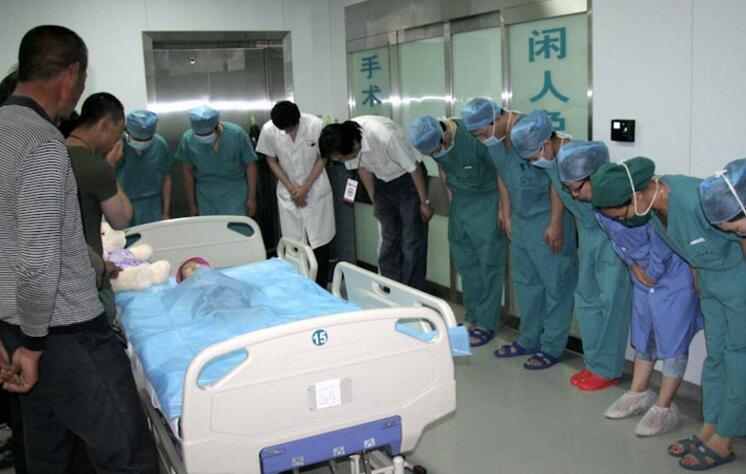
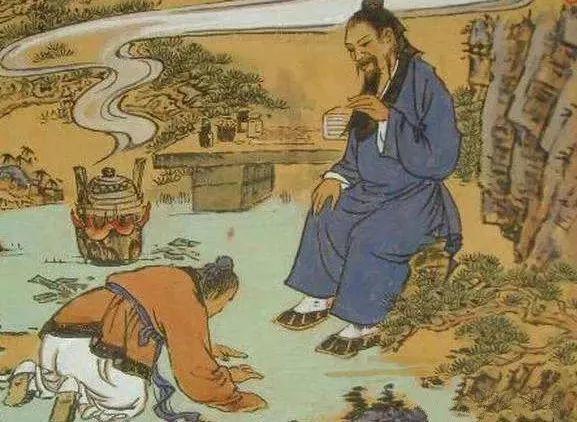
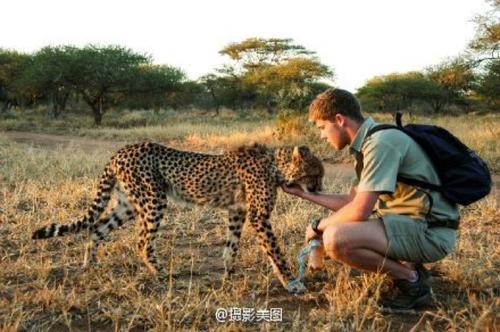


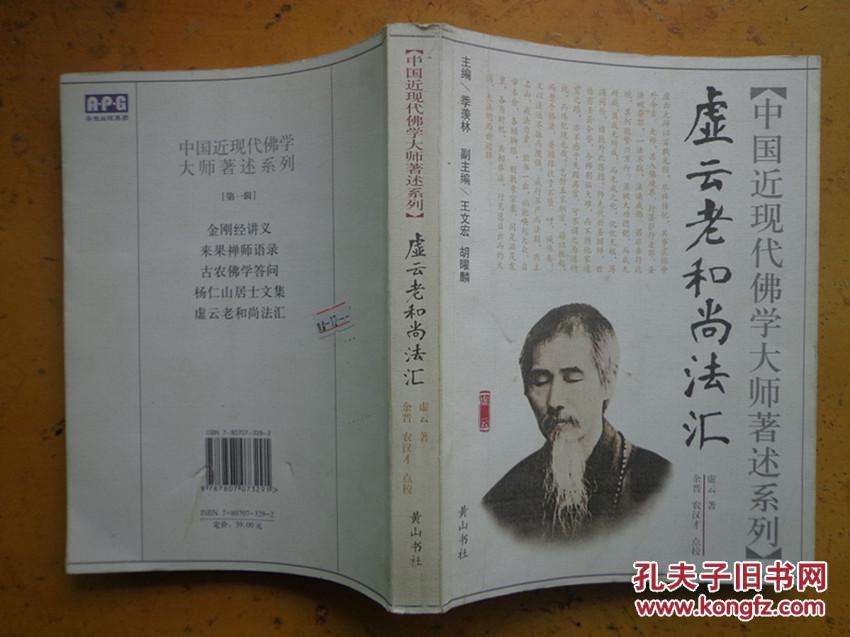
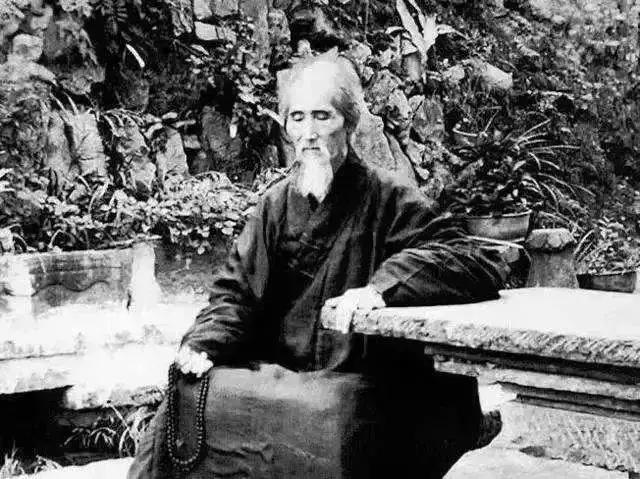
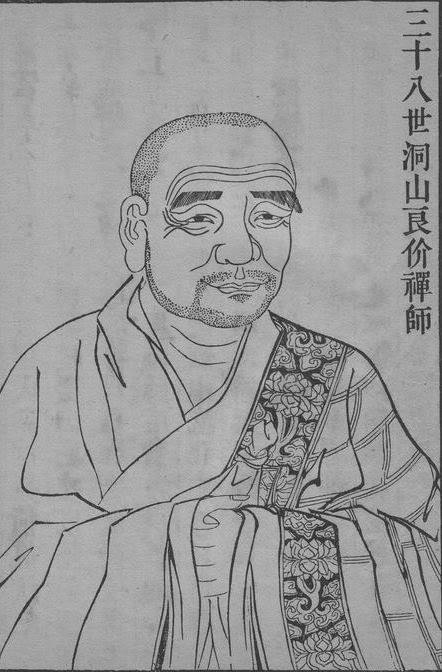
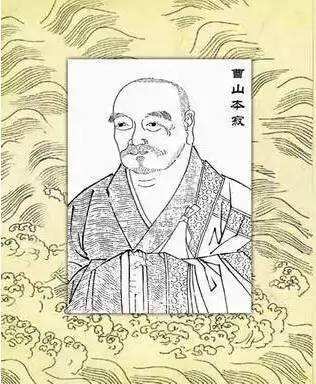
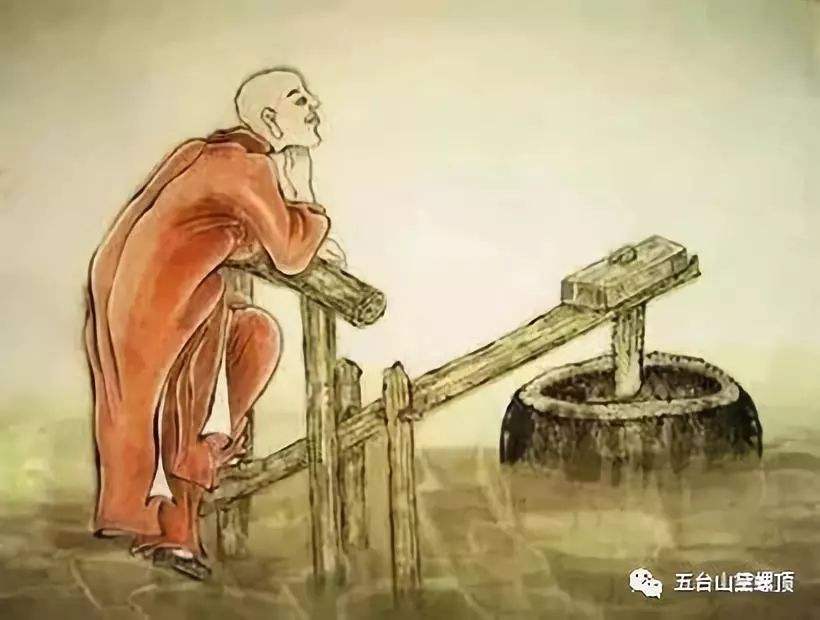
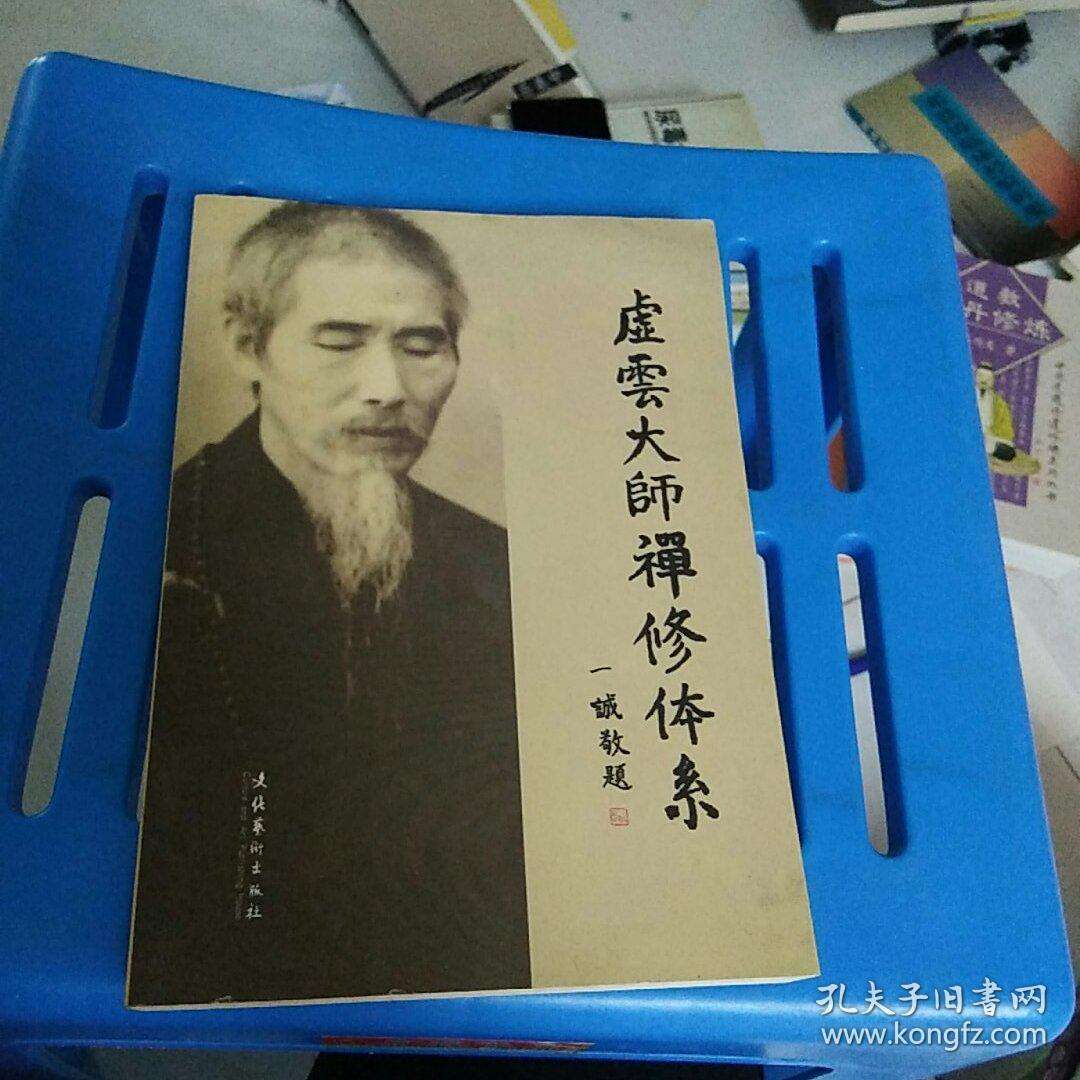
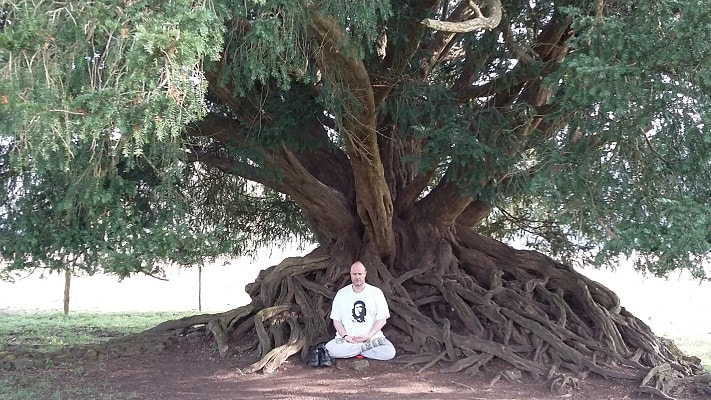
 RSS Feed
RSS Feed